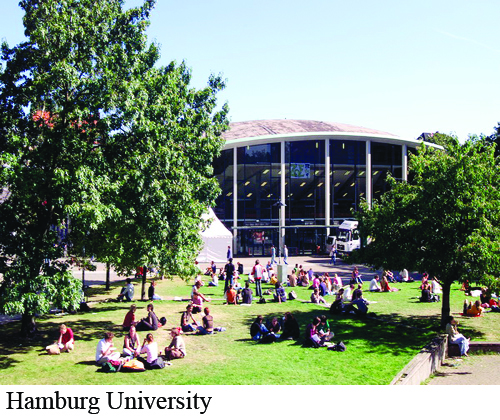The centre for higher education development (che) is responsible for what is arguably Germany’s best-known universities ranking system. Results are presented by means of a simple traffic-light method of classification: top-rated universities get green buttons, average ones yellow and low scorers blue. But the ratings paintbox has recently seen the addition of a new colour: a lot of universities are seeing red.
It all started last September when 300 economics professors signed an open letter of protest against a separate ranking conducted by Handelsblatt, a sober business daily, which does an annual “best of” listing of academics in strict accordance with the number of publications they have to their credit. Prolific publishers were deemed ‘high-flyers’ in their fields and figured accordingly on the lists.

The protesters included even academics who scored well in the ratings yet still felt the “pop idol” criteria of quantity, rather than quality, unworthy of serious academia. But that was just the start. Emboldened by their economics colleagues, other university faculties began to protest. First, members of the German Sociological Association declared they would no longer be forwarding data for CHE rankings.
Then came the English faculties, followed by the Association of Historians and educationalists and, finally, the German Association of Chemists, comprising 30,000 members, who said they were tired of constant ratings and rankings and would also no longer participate.
Then in an even bigger catastrophe, the University of Hamburg announced that henceforth it won’t provide any data at all to CHE. Instead, Dieter Lenzen, the university’s president, declared that he supported looser ratings, rather than hierarchical rankings, similar to those published by the German Science Council and financed by public funds. And the institutions concurring with Lenzen now include the universities of Leipzig and Cologne as well as Hagen, Germany’s distance-learning varsity.
But now academics in Germany are debating whether such educational establishments, financed by the taxpayer, can afford to close their doors entirely to CHE, a think-tank founded by the Bertelsmann Foundation and the German Rectors’ Conference, which ranks approximately 30 study courses of around 300 German universities each year.
Frank Ziegele, managing director of CHE, is critical of Hamburg’s withdrawal from the system. “I can understand it when universities feel snowed under by constant requests for data,” he says, “but I think Hamburg is overreacting.” Moreover, he feels, universities should have a policy of transparency towards the public.
George Turner, a columnist on educational policy with the quirky Berlin daily Tagesspiegel, agrees. “I don’t see any sense in a prolonged boycott of rankings,” he says. “It’s the universities that will suffer because rankings are a fact of life and they influence government decision-making, whether we like it or not.”
 Certainly the CHE rankings have come a long way since they first started in 1998, when early findings were based on narrow criteria — such as the number of visiting research academics or a university’s fundraising potential — that bore little relation to academic life. These days a raft of cross-connected, interlocking criteria provide comprehensive information for new students as well as those seeking to change courses or move to another university. In all, the CHE rankings are compiled using inputs from around 200,000 students and 15,000 professors. Even small faculties, with only 30 students, are taken into account provided CHE gets at least 10 percent feedback.
Certainly the CHE rankings have come a long way since they first started in 1998, when early findings were based on narrow criteria — such as the number of visiting research academics or a university’s fundraising potential — that bore little relation to academic life. These days a raft of cross-connected, interlocking criteria provide comprehensive information for new students as well as those seeking to change courses or move to another university. In all, the CHE rankings are compiled using inputs from around 200,000 students and 15,000 professors. Even small faculties, with only 30 students, are taken into account provided CHE gets at least 10 percent feedback.
Despite this, Lenzen says he feels the disadvantages outweigh the advantages and the university spends a great deal of time and energy providing information for no real reason and with little benefit. “The University of Hamburg already ranks among the top 5 percent of German universities,’’ he says, “so we really don’t need to prove anything.’’
In future, therefore, the university will cooperate with the government and pass on data to the Federal Statistical Office as well as participate in scientific studies. However, it will no longer take part in rankings.